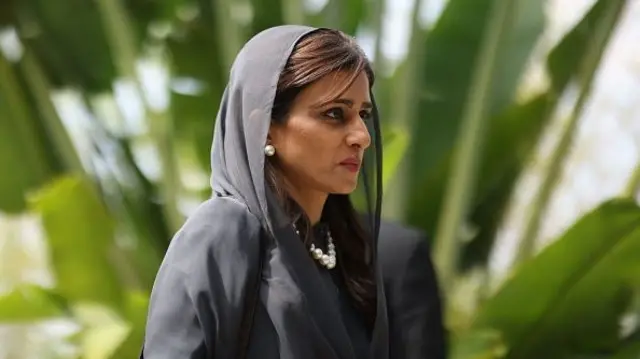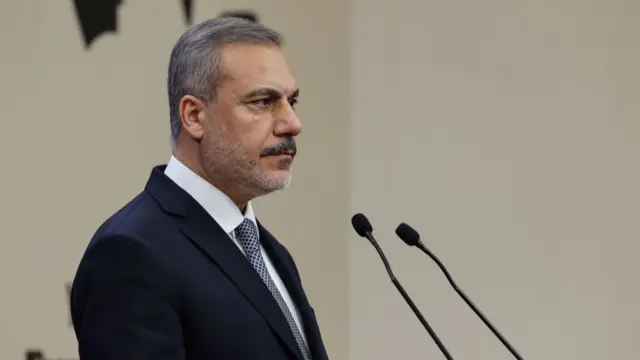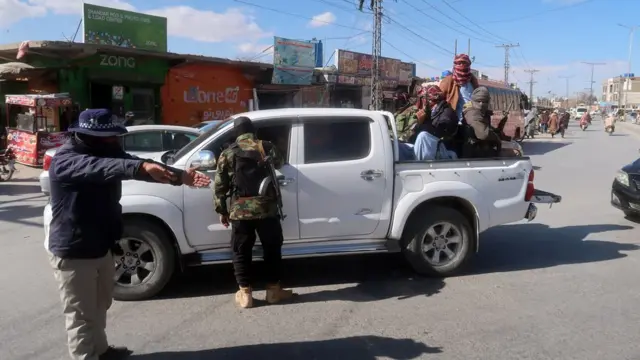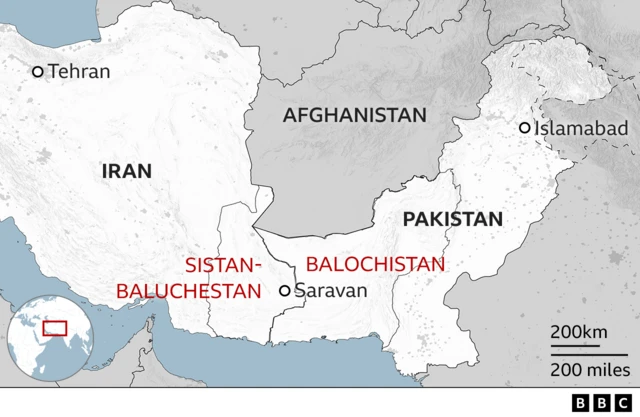Iranian strikes 'illegal and escalatory' - former Pakistani FMpublished at 11:37 GMT 18 January 2024
 Image source, AFP
Image source, AFPFormer Pakistani foreign minister Hina Rabbani Khar says that Iran’s actions on Tuesday were "irrational, illegal and escalatory".
She says the Iranian strikes took place in the context of "a stable relationship with a neighbour that [Iran] shares a 900km [559 miles] border with."
Khar wrote on X that the region could not afford another escalation.
"Pakistan’s action today shows that it will never choose to escalate but has both the will and the capacity to respond to external threats and any attack on its sovereignty."




